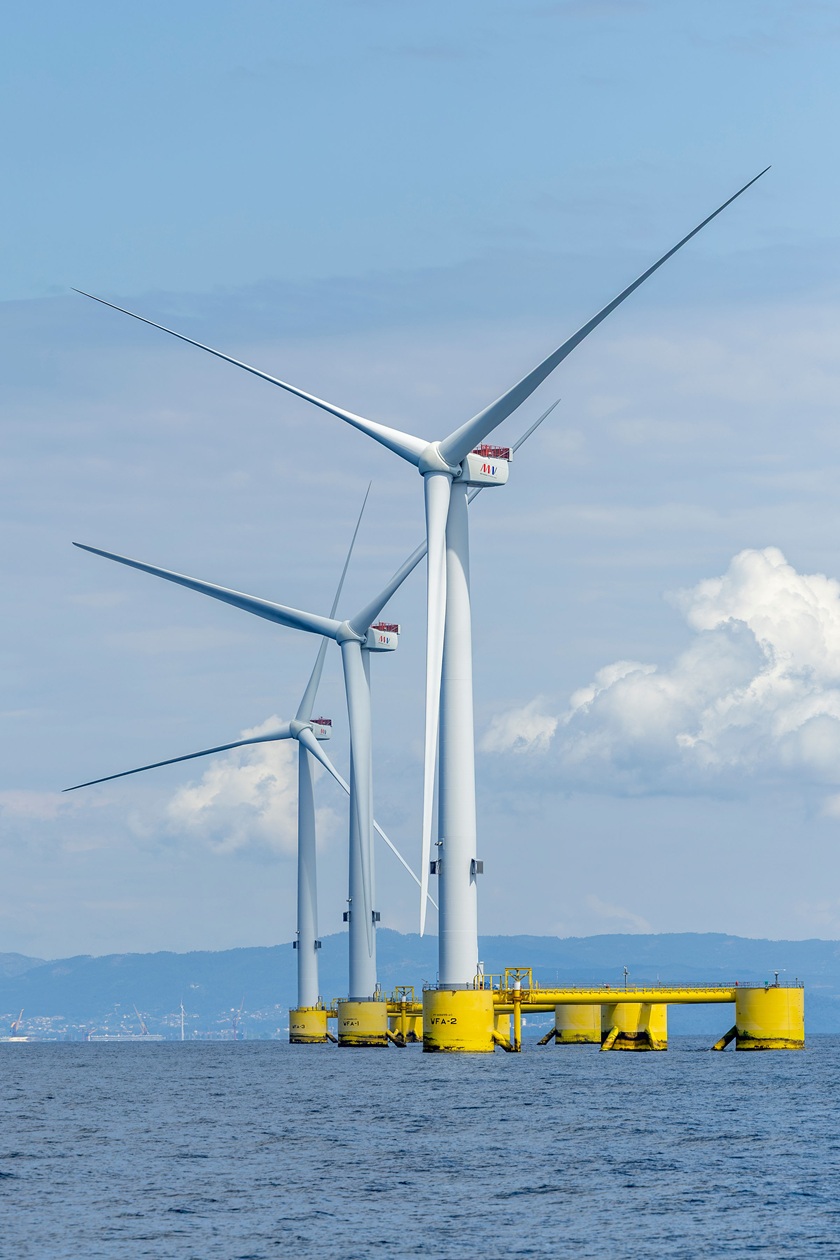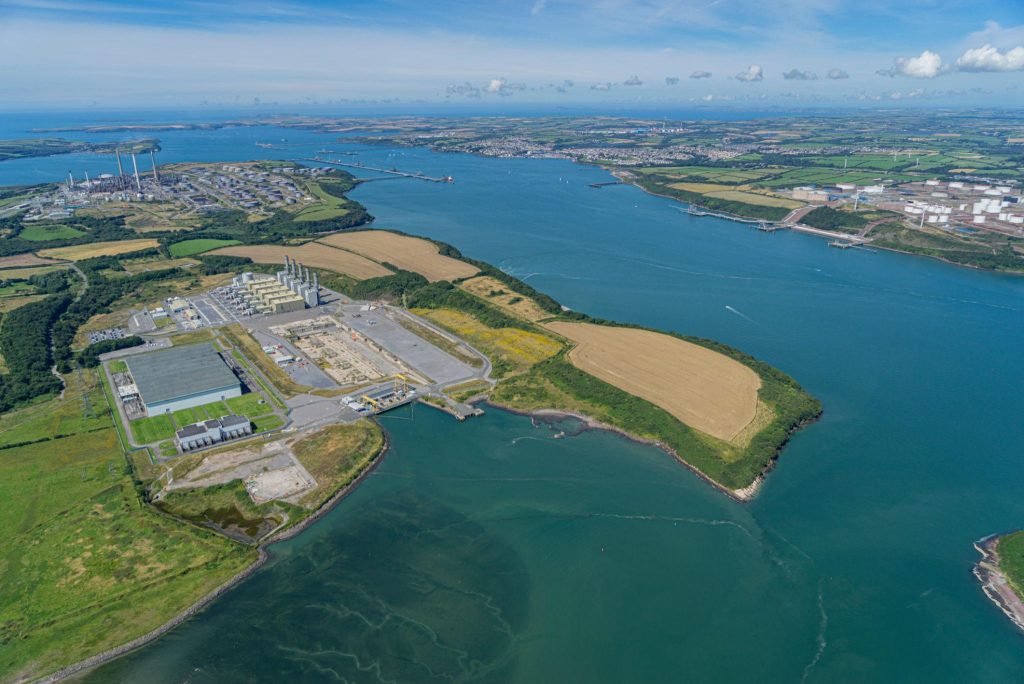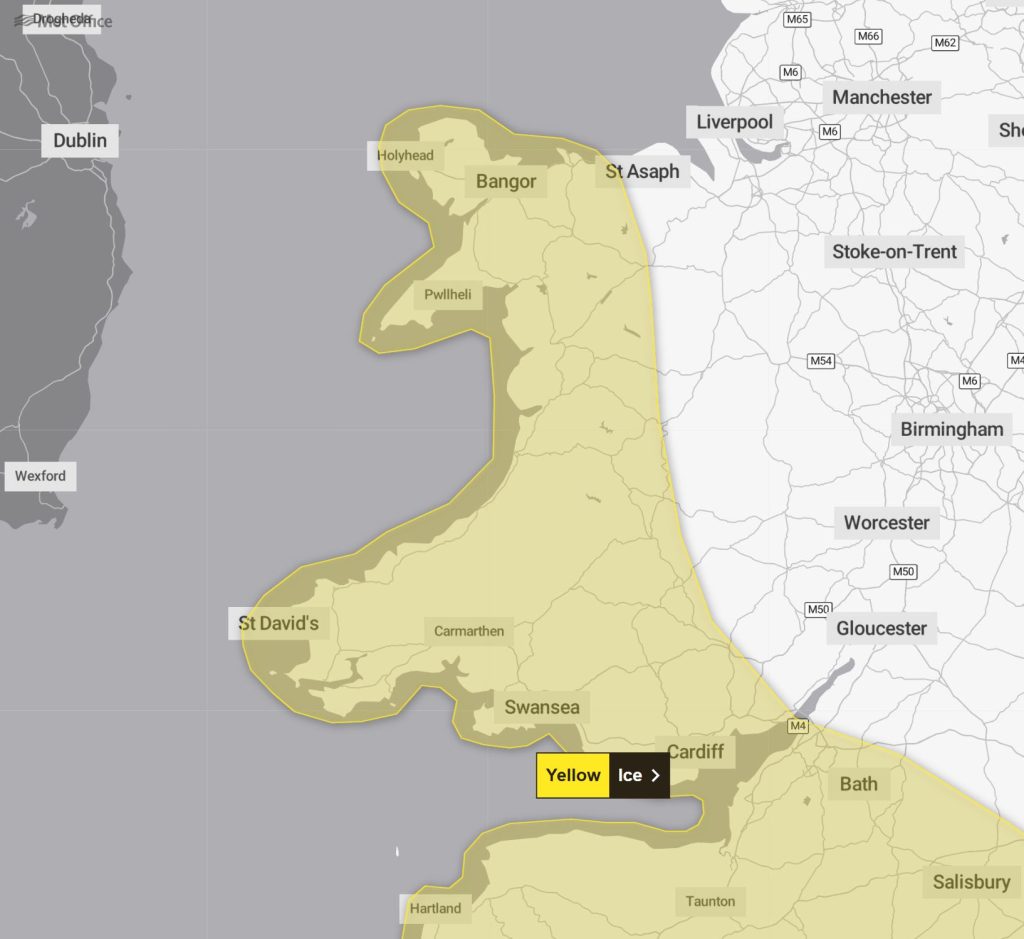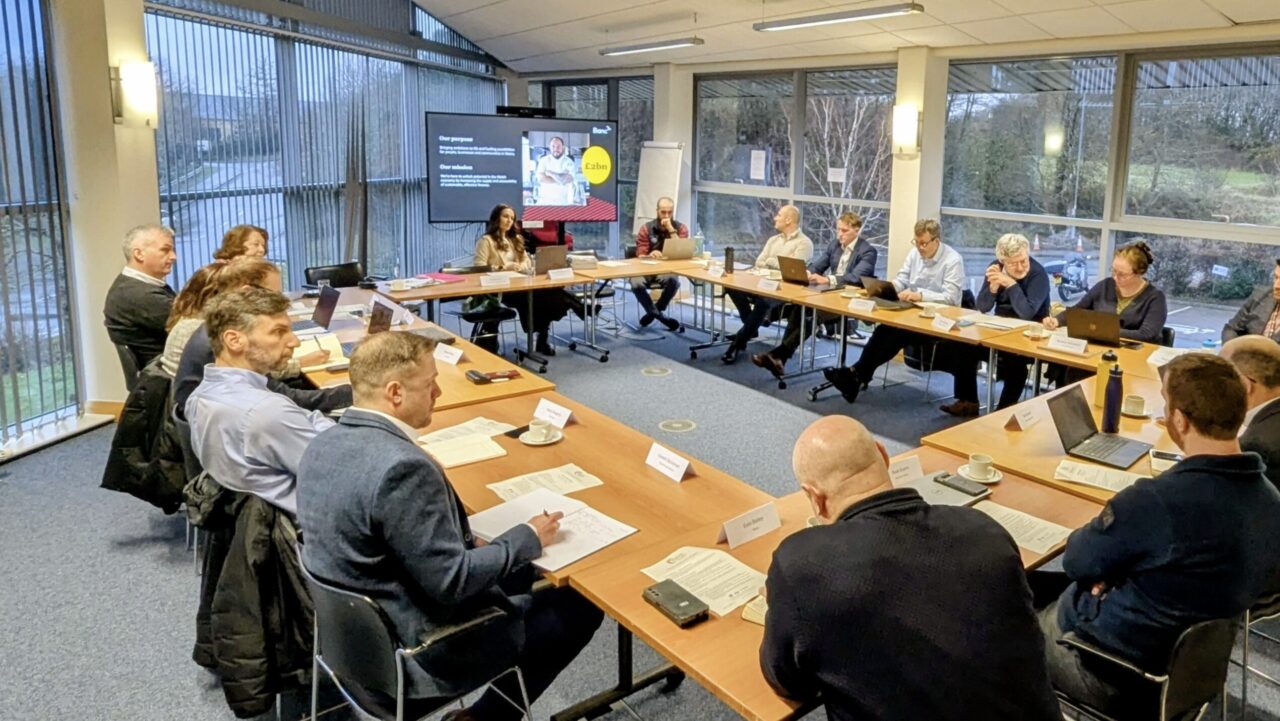Climate
Solidarity between generations ‘crucial to help tackle Climate Change’

MEMBERS of the Senedd’s Cross-Party Group on Intergenerational Solidarity are working together to identify ways to bring different generations together in schools and other educational settings to encourage new action to help tackle climate change.
The impact of climate change was a key agenda item at the Group’s latest meeting, and members agreed that while the younger generation is often most associated with the climate change movement, older people also have significant concerns, and a vital role to play in tackling this threat.
A presentation from Age Cymru highlighted that older people are at particular risk from the effects of climate change, which impacts on their well-being and ability to age well. Hotter summers are creating health risks for older people, for example, especially those with heart issues and other chronic health conditions, while colder winters are increasing fuel costs and forcing many into fuel poverty.
While stereotypes often suggest that older people are not concerned about climate change or its impact, and are not prepared to take action to protect the environment, this is not reflected in data, which shows that 92% of people over 65 are concerned about climate change and that nearly three-quarters of people over 65 think the government is doing too little to respond to climate change.
However, these kinds of myths and misconceptions can create tensions between generations which can act as a barrier to action. Encouraging solidarity is therefore important to enable knowledge-sharing and to inspire fresh perspectives and new ideas.
Older People’s Commissioner for Wales, Heléna Herklots CBE said: “We know that climate change projects that have brought generations together have been successful and the action agreed by the Group will enable more work like this to inspire fresh perspectives and new ideas.
“It is important that people of all ages work together to play their part in tackling climate change and action across all generations will be important to support this.”
Delyth Jewell MS, Chair of the Cross-Party Group on Intergenerational Solidarity, said: “We should not see the climate crisis as an issue that divides people: across all generations, our experience of this crisis must bind us together in a firm resolve. From flooding, wildfires and heatwaves that already blight our communities, it would be easy for us to lose hope, or to pit generations against one another. But wasting our energies in such a way would only intensify isolation; it would do nothing to combat the crises that face us.
“There is so much good work going on, intergenerationally, to address the climate crisis. From projects linking care homes with schools, from comics being developed to share stories, and workshops that link different generations together, there is so much we have to celebrate. Chairing the Cross Party Group on Intergenerational Solidarity always reminds me of the wonderful, defiant work that’s going on across Wales. That gives me hope – and we need to get better at telling those stories.”
The Commissioner added: “There is often a misconception that older people don’t care about climate change, which is simply not true, something that pits younger and older generations against one another and feeds into wider ageist narratives that can lead to discrimination.
“Given the scale of the issues we face, it is essential that generations are united and work together to tackle the threats posed by climate change.”
Climate
Investment prospectus puts Pembrokeshire at heart of £20bn clean energy drive

Haven Waterway set to become major hub for wind, hydrogen and port jobs as Wales launches investment prospectus
PEMBROKESHIRE could be in line for billions of pounds of new energy investment after a major national strategy identified Wales’ ports and heavy industry heartlands as key to unlocking more than £20bn in clean infrastructure projects over the next decade.
A new Clean Energy Investment Prospectus published this week by Net Zero Industry Wales sets out a pipeline of “investible” projects across offshore wind, hydrogen, industrial decarbonisation, ports and data centres — with the Haven Waterway widely seen as one of the most attractive locations in the country.
Industry experts say Milford Haven and Pembroke Dock already have the deep-water access, grid connections and industrial land needed to host the next generation of energy schemes.
The Herald understands that several projects linked to floating offshore wind assembly, hydrogen production and port upgrades are being explored locally as part of the wider push.

Jobs and contracts
The Prospectus acts as what organisers call a “one-stop shop” for global investors, bringing together sites, policy support and funding routes.
For Pembrokeshire, that could mean:
- port expansion and quay strengthening
- turbine assembly and maintenance bases
- marine engineering and fabrication work
- hydrogen and low-carbon fuel plants
- construction and long-term skilled jobs
Floating wind alone is expected to create thousands of roles across Wales during construction and operations, with much of the heavy lifting likely to happen in west coast ports.
With the Celtic Sea tipped to become one of Europe’s largest floating wind zones, Pembrokeshire’s existing energy infrastructure gives it a head start.
Major players already circling
Recent Welsh Government announcements linked to the programme include commitments and interest from global firms such as RWE, Eni, and Vantage Data Centres.
Support is also available through bodies including the Development Bank for Wales, aimed at helping projects move quickly from planning to delivery.
Ben Burggraaf, chief executive of Net Zero Industry Wales, said Wales offered “a unique combination of natural competitive advantages and industrial capability”.
He added: “We have significant clean energy resources, a strong industrial base, and a large and diverse pipeline of projects backed by credible organisations and skilled people — giving investors both scale and opportunity to make a real difference.”
Government backing
Wales’ Cabinet Secretary for Economy, Energy and Planning, Rebecca Evans, said the country was “primed to capitalise on the UK’s clean energy revolution”.
She said: “By working together with developers and stakeholders we can boost our economy and achieve our renewable energy targets for Wales.”
Why Pembrokeshire fits the bill
Energy analysts say few places in the UK combine:
- two LNG terminals
- deep-water shipping access
- heavy industry and engineering skills
- available dockside land
- existing power connections
All of which are already present around the Haven.
That makes the area particularly attractive for assembling massive floating wind structures and servicing turbines once operational.
Local businesses — from steel fabricators to haulage firms and electricians — could benefit from supply-chain work if even a fraction of the promised investment lands in the county.
Long-term impact
While the £20bn figure covers the whole of Wales, insiders say west Wales stands to gain disproportionately because large-scale energy schemes simply cannot be built inland.
For Pembrokeshire, the Prospectus signals that the Haven Waterway’s future may be as a green energy powerhouse rather than a traditional fossil fuel hub.
If realised, it could reshape the county’s economy for a generation.
Photo caption: Milford Haven’s deep-water port and industrial shoreline are seen as prime locations for offshore wind and hydrogen investment (Pic: Herald file).
Climate
Ice warning issued as temperatures fall below freezing across Pembrokeshire

Cold snap expected to create hazardous roads and pavements overnight into Monday morning
PEMBROKESHESHIRE residents are being urged to take extra care after a yellow weather warning for ice was issued for the whole of Wales.
The alert, issued by the Met Office, covers the period from late Sunday night (Feb 1) until mid-morning on Monday (Feb 2), with temperatures expected to drop to around minus two degrees Celsius in some areas.
Forecasters say wet roads and surfaces left by earlier showers are likely to freeze quickly after dark, creating icy stretches on untreated roads, pavements and rural lanes across Pembrokeshire.

Travel disruption possible
The Met Office warns that icy patches may form widely, increasing the risk of slips and falls and making journeys slower and more hazardous, particularly during the Monday morning commute.
Untreated side roads, country routes and shaded areas are expected to be most affected, with black ice possible in places where frost is not easily visible.
Drivers are advised to allow extra time for journeys, slow down and keep a safe distance from other vehicles. Pedestrians are urged to wear suitable footwear and take care on steps, slopes and pavements.
Gritting teams are expected to treat main routes overnight, but officials warn that not every road can be covered.
Local outlook
Temperatures across the county are forecast to fall sharply after sunset on Sunday, with frost forming widely before dawn. Inland and higher ground areas are likely to see the coldest conditions.
Residents are also being encouraged to check on elderly or vulnerable neighbours and ensure homes are adequately heated during the cold spell.
Conditions are expected to improve later on Monday as temperatures rise above freezing, but further updates may be issued if the forecast changes.
Climate
Breaking down barriers between finance and industry in offshore renewables sector

EARLIER this week, Marine Energy Wales brought together senior representatives from national and devolved finance institutions with developers, ports and supply-chain companies operating across Wales’ offshore renewable energy sector for a dedicated finance roundtable in Pembroke Dock. Attendance was limited to premium MEW members to allow for frank, focused discussion.
The session was intentionally designed to be different.
Rather than relying on formal presentations or sales pitches, the roundtable created a facilitated, closed-door space for open dialogue. Finance organisations were able to explain clearly how they operate, what types of projects they can support, and where constraints still exist. Industry participants, in turn, set out the real-world challenges they are facing across tidal energy, floating offshore wind, port infrastructure and supply-chain development.
What emerged was more than information sharing—it was a clearer, shared understanding of how decisions are made on both sides.
From siloed conversations to shared problem-solving
A consistent theme from the discussion was that significant public and institutional finance is now available to support clean energy projects. However, navigating that landscape remains complex, particularly for early-stage developments, smaller supply-chain businesses and emerging technologies.
By bringing the right people into the room at the same time, the roundtable helped to:
- demystify how different finance bodies assess risk, scale and project readiness
- highlight where policy ambition, market signals and investment criteria are not yet aligned
- identify opportunities where better sequencing and coordination of funding could unlock progress
- establish direct relationships that will support follow-up conversations beyond the room
The discussion also surfaced where gaps remain. In particular, the need for clearer market signals and more tailored support for tidal stream and other early-stage marine technologies was repeatedly raised. These are challenges that are difficult to address in isolation, but far more productive to tackle collectively.
The value of convening
For Marine Energy Wales, the roundtable reinforced the importance of our role as a neutral convener for the sector.
Members consistently tell us that access to finance is one of the most significant barriers to progress—not only in terms of capital availability, but in understanding how to engage effectively with funders. At the same time, finance organisations are keen to deepen their understanding of project development timelines, technology risk and the scale of Welsh supply-chain ambition.
Creating space for those conversations is where real value is added.
This is not about Marine Energy Wales brokering individual deals. It is about building shared understanding, reducing friction, and helping to align finance, policy and industry around credible pathways to delivery.
What comes next
This roundtable was not a one-off.
Marine Energy Wales is committed to continuing this work, developing structured and trusted forums where finance, industry and government can engage early, openly and constructively. As Wales moves from ambition to delivery in offshore wind and tidal energy, these relationships and conversations will be critical to ensuring projects are investable, deliverable and anchored in Welsh economic benefit.
We will continue to work with our members and partners to identify priority issues, convene the right voices, and help turn opportunity into tangible outcomes on the ground.
-

 Crime1 day ago
Crime1 day agoSex offender jailed after living off grid in Pembrokeshire and refusing to register
-

 Health9 hours ago
Health9 hours agoHealth board targets rise in steroid and gym drug use across west Wales
-

 News3 days ago
News3 days agoPrincess of Wales visits historic Pembrokeshire woollen mill
-

 Crime6 days ago
Crime6 days agoPembroke man accused of child sex offences sent to Swansea Crown Court
-

 Health4 days ago
Health4 days agoDoctor struck off after sexual misconduct findings at Withybush Hospital
-

 Crime11 hours ago
Crime11 hours agoTeacher injured and teenager arrested for attempted murder at Milford Haven School
-

 Community6 days ago
Community6 days ago50s women threaten legal action over pension compensation refusal
-

 Education5 days ago
Education5 days agoIndustry insight helps marine cadets chart career course






















